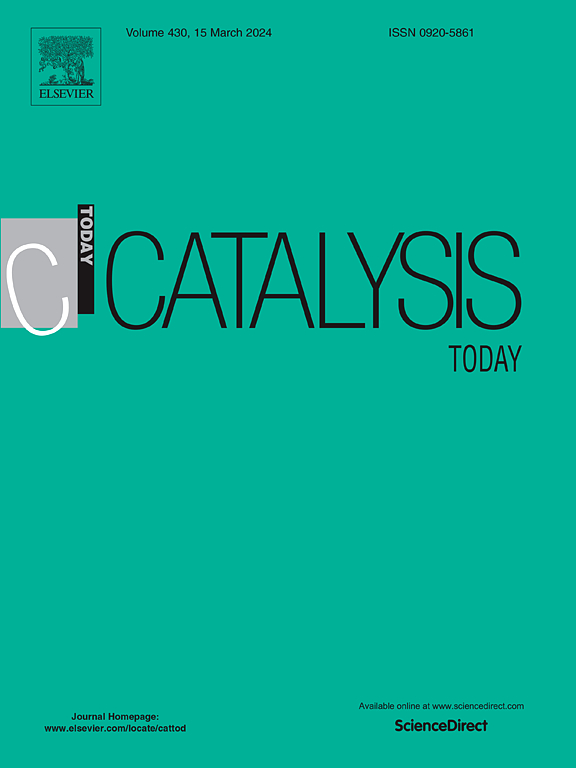纤维增强塑料废弃物热解挥发物催化升级制氢研究
IF 5.3
2区 化学
Q1 CHEMISTRY, APPLIED
引用次数: 0
摘要
研究了纤维增强塑料废弃物热解过程中挥发分的资源化利用。实验是在实验室规模的装置中进行的,该装置由两个串联的反应器组成,目的是在第一个反应器中热解样品,并在第二个反应器中升级挥发物。热解在500 °C下进行,升级在900 °C下进行,有预重整催化剂、H2S吸附剂,两者都有,也没有。结果表明,为了消除该类废弃物产生的复杂热解油,提高产量和改善气体组成,需要进行升级步骤。预重整催化剂提高了升级步骤的性能,产氢率达到57.8%。H2S吸附剂能够消除80%的H2S,并使催化剂性能更好,产生最高的产气量(10.4 wt%)、氢气浓度(53.5 vol%)、合成气浓度(75.5 vol%)和氢气收率(69.3%)。本文章由计算机程序翻译,如有差异,请以英文原文为准。
Hydrogen production by catalytic upgrading of volatiles from pyrolysis of fibre-reinforced plastic waste
The upgrading of the volatiles coming from the pyrolysis of fibre-reinforced plastic waste is studied in this work. The experiments have been carried out in a lab-scale installation composed of two reactor connected in series, in order to pyrolyse the sample in the first reactor and upgrade the volatiles in the second one. The pyrolysis has been carried out at 500 °C and the upgrading has been conducted at 900 °C in the presence of a pre-reforming catalyst, a H2S sorbent, the both of them and none of them. The results show that the upgrading step is required to eliminate the complex pyrolysis oils generated with this type of waste and to enhance the production and improve the composition of the gases. The pre-reforming catalyst increases the performance of the upgrading step, providing a hydrogen yield of 57.8 %. The H2S sorbent is able to eliminate the 80 % of the H2S and allows the better performance of the catalyst, yielding the highest gas production (10.4 wt%), hydrogen concentration (53.5 vol%), syngas concentration (75.5 vol%), and hydrogen yield (69.3 %).
求助全文
通过发布文献求助,成功后即可免费获取论文全文。
去求助
来源期刊

Catalysis Today
化学-工程:化工
CiteScore
11.50
自引率
3.80%
发文量
573
审稿时长
2.9 months
期刊介绍:
Catalysis Today focuses on the rapid publication of original invited papers devoted to currently important topics in catalysis and related subjects. The journal only publishes special issues (Proposing a Catalysis Today Special Issue), each of which is supervised by Guest Editors who recruit individual papers and oversee the peer review process. Catalysis Today offers researchers in the field of catalysis in-depth overviews of topical issues.
Both fundamental and applied aspects of catalysis are covered. Subjects such as catalysis of immobilized organometallic and biocatalytic systems are welcome. Subjects related to catalysis such as experimental techniques, adsorption, process technology, synthesis, in situ characterization, computational, theoretical modeling, imaging and others are included if there is a clear relationship to catalysis.
 求助内容:
求助内容: 应助结果提醒方式:
应助结果提醒方式:


